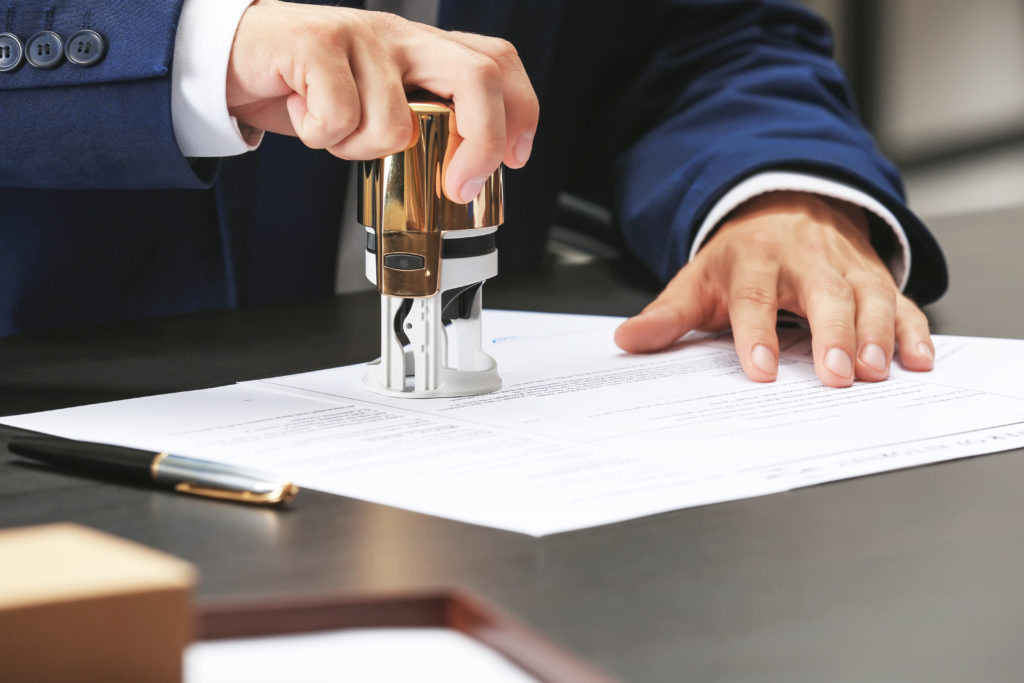Demystifying Notarial Job: Streamlining the Duty and Importance of Notaries
In the elaborate internet of legal documents and verification, notaries stand as pillars of assurance and authenticity. Their function, typically shrouded in enigma for several, carries considerable weight in guaranteeing the credibility and integrity of vital papers. As guardians of legality and reality, notaries play a pivotal component in our culture, yet their work is not constantly totally understood. By unwinding the complexities losing and surrounding notarial techniques light on the significance of their acts, a clearer understanding arises of the essential function notaries play in promoting the textile of contractual and legal arrangements.
The History of Notarial Work
The history of notarial job dates back to old worlds, where scribes played a vital role in recording vital info and authenticating files. This led to the advancement of notaries, people designated by the state to act as neutral witnesses in legal issues.
During the Middle Ages, notaries obtained importance in Europe, with their features expanding to include composing legal papers, licensing signatures, and protecting documents. The rise of global trade additionally highlighted the significance of notarial job in validating contracts and contracts throughout boundaries.
In the contemporary period, notaries remain to play an important function in lawful and business transactions by verifying identifications, confirming the authenticity of papers, and preventing fraudulence. Their role in certifying the validity of contracts includes a layer of protection and trust fund to the ever-evolving landscape of commerce and legislation.

Tasks and Obligations of Notaries
The historic development of notarial work from ancient civilizations to the modern-day period has actually shaped the distinct tasks and obligations that notaries maintain in legal and organization transactions today. Notaries play a crucial duty in confirming the authenticity of documents and the identification of signatories. One of their main duties is to witness the finalizing of vital records, such as wills, acts, and agreements, to make sure that all celebrations are participating in agreements intentionally and willingly. Notaries additionally verify that signatories are of sound mind and not under duress or browbeating.
They license duplicates of initial documents, providing assurance to establishments that the copies are true replicas of the originals. In general, the responsibilities and obligations of notaries are necessary in guarding the stability and validity of numerous papers and deals - Conveyancer.
Notarial Certificates and Signatures
Exemplifying precise attention to information, notarial certificates and trademarks work as important components in verifying the authenticity of lawful papers. Notarial certifications typically contain crucial details such as the day of notarization, the names of the notaries, a description of the record, and the notary's official seal. These certificates offer a clear record of the notarial act, making sure that the record can be quickly determined and traced back to the notary who supervised the process.
Trademarks play a crucial duty in notarial work, as they signify the contract and consent of the parties entailed. Notaries very carefully witness the signing of documents to validate the identity of the signatures and confirm that they are authorizing of their own free will. By attaching their my sources main seal and trademark to the document, notaries accredit that the necessary procedures have Home Page been complied with and that the file is legitimate and enforceable.
Basically, notarial certificates and trademarks are the trademark of authenticity in legal purchases, offering guarantee to all celebrations entailed that the documents are genuine and binding.
Relevance of Notarial Acts

Registration Refine Discussed
Describing the registration procedure offers clarity on the important steps included in validating lawful papers. The notarization process normally begins with the specific offering the record to a notary public. The notary after that validates the endorser's identification with appropriate recognition methods. As soon as the identification is validated, the notary ensures that the individual authorizing the record does so voluntarily and without click here to find out more any coercion.

Final Thought

Notarial certifications typically have essential info such as the day of registration, the names of the signatories, a description of the document, and the notary's official seal. These certificates give a clear record of the notarial act, making sure that the record can be conveniently identified and traced back to the notary that looked after the process.
By attaching their main seal and trademark to the document, notaries certify that the required procedures have actually been adhered to and that the document is valid and enforceable.
By verifying the identity of the signatories, confirming their desire to get in right into the arrangement, and licensing the day and area of the finalizing, notaries play an important function in maintaining the legitimacy of lawful documents.After the document is authorized, the notary will certainly fasten their main seal or stamp onto the paper.
Comments on “Comprehending Apostille: Simplifying International Record Legalisation”